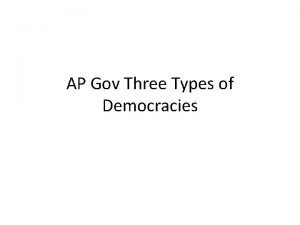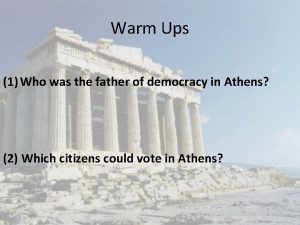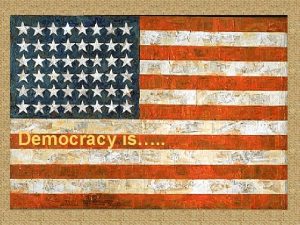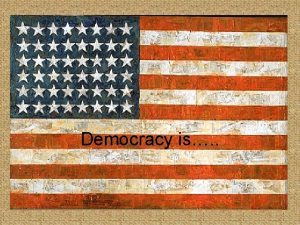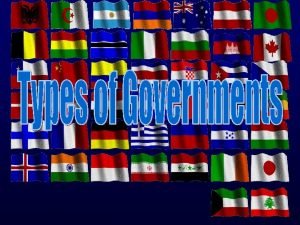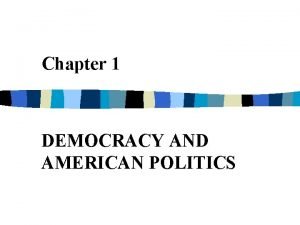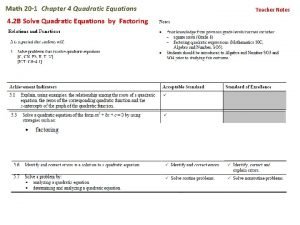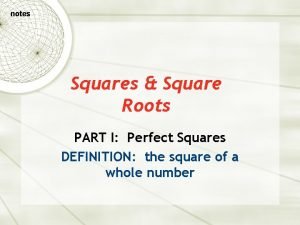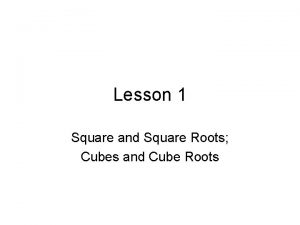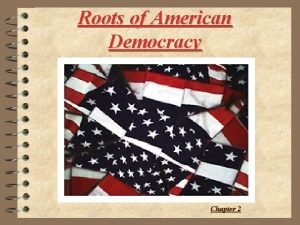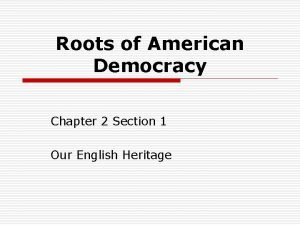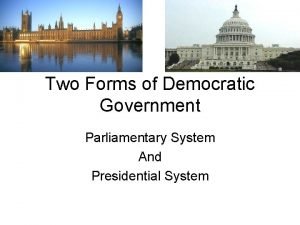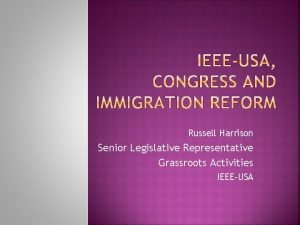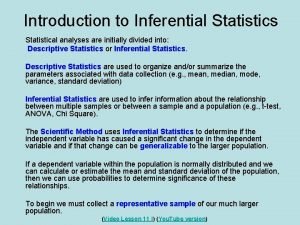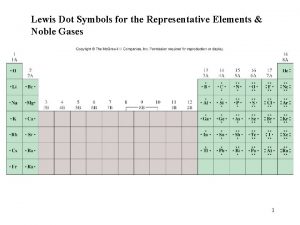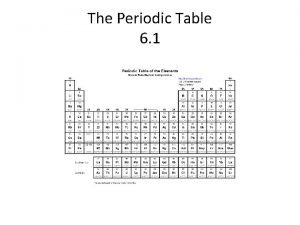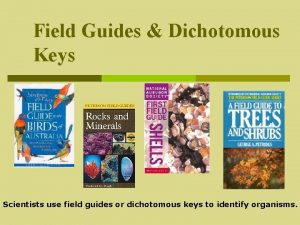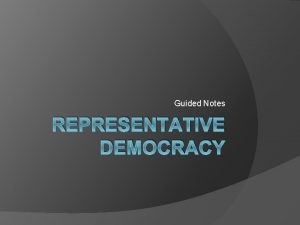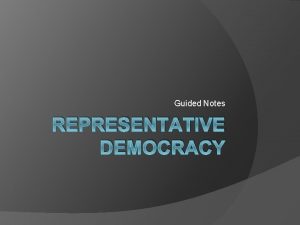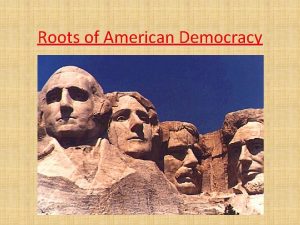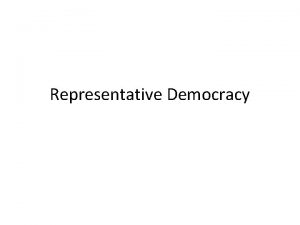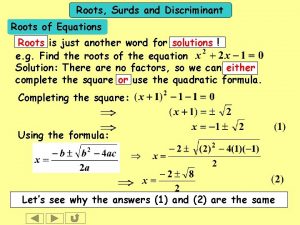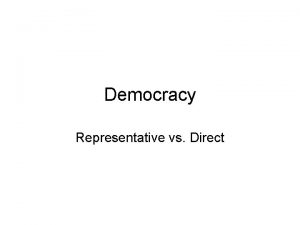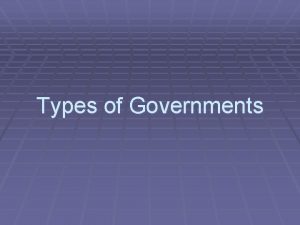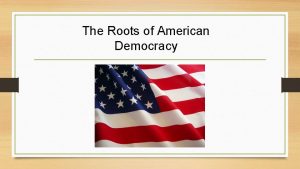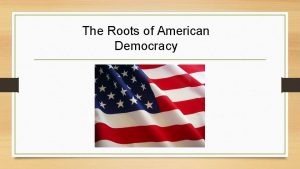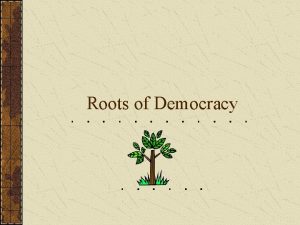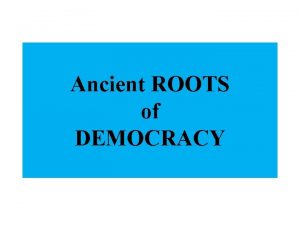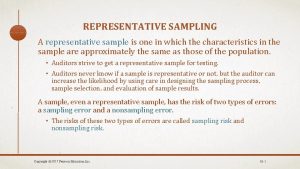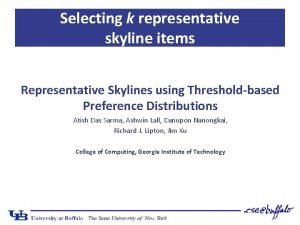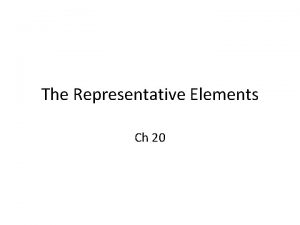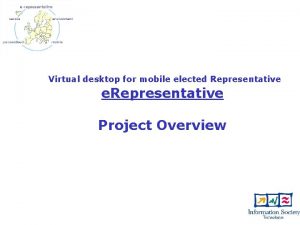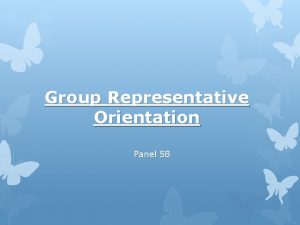Session Roots of Representative Democracy Democracy is A
























- Slides: 24

Session: Roots of Representative Democracy

Democracy is. . A system of government in which citizens: Vote for their leaders Have specific rights and responsibilities

Democracy came from many sources:

The ancient Greeks : In Athens, citizens voting for their leaders became common “Civic virtue” became important to many philosophers.

The ancient Romans : Developed the “rule of law” common to all citizens throughout the empire Developed advanced forms of representative government, before evolving in to a dictatorship.

The Bible: Hebrew prophets developed the idea of all people being equal, created in the image of God. The idea caring for the weaker members of society.

Two types of democracy Direct democracy Power vested directly in the people • All citizens take part in each decision made • Majority rule, no protection for minority Representative democracy Citizens elect representatives to make decisions for them • This is also referred to as a Republic Definition of a republic: power rests in the body of citizens entitled to vote and is exercised by representatives chosen directly or indirectly by them. Protection by rule of law.

Key elements of Democracy: 1. 2. 3. 4. 5. 6. 7. Citizen Involvement System of Representation Rule of Law Electoral System Equality Freedom, Liberty, and Rights Education 8

1) Citizen Involvement Direct Democracy: Citizens take part personally in deliberations and vote on issues. Citizens debate and vote on all laws. Representative Democracy: Citizens choose (elect) other citizens to debate and pass on laws. 9

Participation 1. Voting. 2. Political parties and/or interest groups. 3. Political meetings or public hearings, discussing politics, calling your representative. 10

Participatory Democracy Low voter turnout should not be “rationalized. ”/”Excused” Advocate “Citizen Law Makers” People are more likely to follow laws they help make. If we must have representative democracy then we must create incentives for more participation. For example: 1. Initiatives (Prop 215) 2. Referendum (Plastic Bags) 11

2) A system of Representation Citizens delegate power to representatives to act for them. Based upon the 2010 census there is one representative for every 710, 767 citizens in HOR 12

3) Rule of Law is supreme, nobody is above the law, even those who make law against divine right doctrine popular sovereignty—all power emanates from the people. 13

4) The Electoral system Conflict over procedure of choosing representatives Electoral process begins with the selection of candidates—But how does one become a candidate? Importance of access to information. Result of not voting is the transference of political power to others. 14

5) Equality A. B. C. D. E. Definition: sameness in relevant aspects Disagreement over definition: political equality before the law equality of opportunity economic equality of respect or social equality; 15

Natural Rights and Civil Rights: Natural Rights: Rights a person has a human being Civil Rights: Rights derived from government. 16

How do we limit Government? Frequent elections Watch dogs Civil disobedience Protest Revolution 17

SO WHAT? NOW WHAT? Let’s make sure you know who are the people responsible for making sure YOUR democracy is SAFE…

Remember Federalism? ? ? . . . We live “under” lots of government Shouldn’t we know who are the people that are representing us in the various levels of government?

Our “REPS” Here for School Federal Level: President Barack Obama Congresswoman Maxine Waters Senator Diane Feinstein Senator Barbara Boxer

Our “REPS” Here for School The State Level: Governor Jerry Brown State Assemblywoman Autumn Burke State Senator Isadore Hall

Our “REPS” Here for School Local/Municipal Level: *Note- Lennox is not part of LA City, but part of Los Angeles CO. It’s called “Unincorporated” Los Angeles So decisions for Lennox are made by the County of Los Angeles

Our “REPS” Here for School Local/Municipal Level: Sheriff Jim Mc. Donnell District Attorney Jackie Lacy County Board Supervisor Mark Ridley-Thomas

Where we go from here… Tuesday November 8 th is the general election, but also our own Mock Election on the same day You will be “voting” for: 1. President of the U. S. (POTUS) 2. U. S. Senate 3. Several CA Propositions (not all of them) Next session, you will be learning about what you’re voting on to be informed as possible
 Pluralist democracy definition ap gov
Pluralist democracy definition ap gov What is representative democracy
What is representative democracy Cartoon 1
Cartoon 1 Representative democracy political cartoon
Representative democracy political cartoon Representative democracy examples
Representative democracy examples Struggle chapter 1
Struggle chapter 1 Existence and uniqueness of square roots and cube roots
Existence and uniqueness of square roots and cube roots The roots of american imperialism economic roots
The roots of american imperialism economic roots Vanessa jason biology roots www.biology-roots.com
Vanessa jason biology roots www.biology-roots.com X 1 2 formula
X 1 2 formula Roots part i
Roots part i Squares square roots cubes and cube roots
Squares square roots cubes and cube roots Chapter 2 roots of american democracy answers
Chapter 2 roots of american democracy answers Chapter 2 roots of american democracy answers
Chapter 2 roots of american democracy answers Presidential vs parliamentary
Presidential vs parliamentary Dichotomous key
Dichotomous key Senior legislative representative
Senior legislative representative Representative sample in statistics
Representative sample in statistics Noble gases lewis dot structure
Noble gases lewis dot structure Gain lose electrons periodic table
Gain lose electrons periodic table Example of representative speech act
Example of representative speech act What is the representative unit in a molecular compound?
What is the representative unit in a molecular compound? Dichotomous key
Dichotomous key Representative plant cell
Representative plant cell Market america sales representative
Market america sales representative
